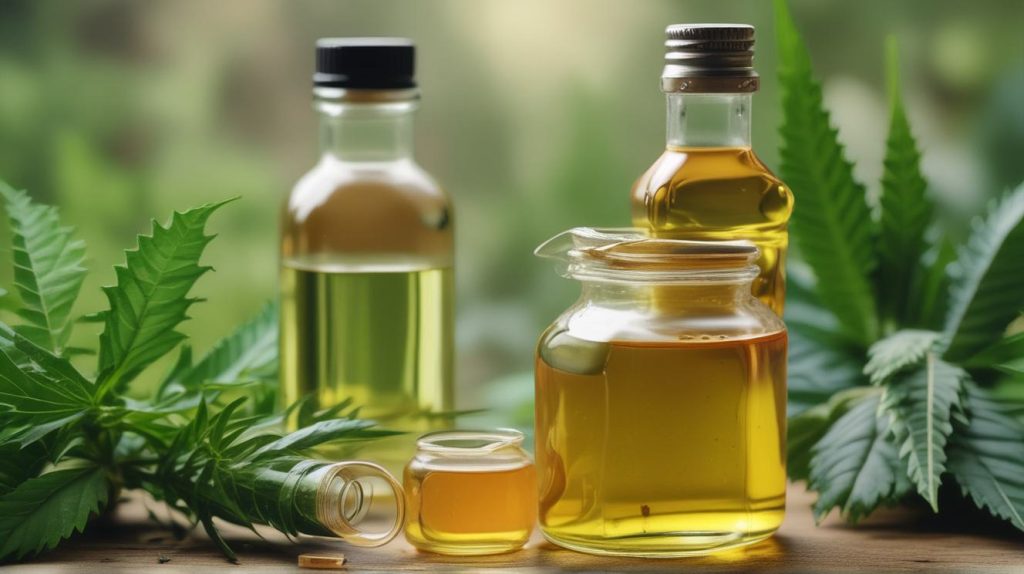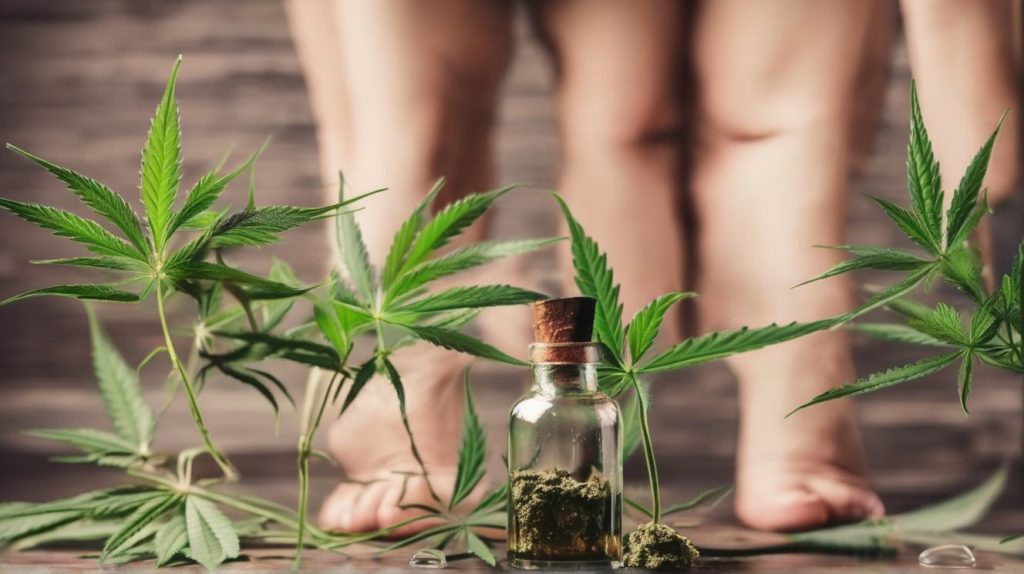As a new mom navigating the world of breastfeeding, I’ve been curious about the impact of smoking weed while nursing. It’s a topic that’s sparked many discussions among mothers like myself. We all want to prioritize the health and safety of our little ones, so understanding how cannabis use affects breast milk is crucial. In this article, we’ll delve into the research and insights surrounding this controversial subject. Let’s explore whether smoking weed while breastfeeding poses any risks to our babies and what factors we should consider when making informed decisions about our health and the well-being of our little ones.
Is it Safe to Use Medical Marijuana While Breastfeeding?
After researching and consulting with healthcare providers, I’ve learned that using medical marijuana can have serious implications for breastfeeding. Medical marijuana contains THC, which can pass into breast milk and affect my baby’s development. Maternal marijuana use can also alter the THC content in breast milk, posing risks to my baby’s health and development. As much as I’m seeking relief for my health issues, I know that prioritizing my baby’s well-being is crucial, and that means avoiding medical marijuana while breastfeeding.
THC Transfers to Breast Milk
So, let’s talk about something that’s been on my mind lately: THC in breast milk. As a new mom who occasionally indulges in cannabis, I’ve been wondering about the effects it might have on my baby through breastfeeding. There’s a lot of conflicting information out there, so I decided to dig deeper into the topic. THC, the psychoactive compound in cannabis, has been found to transfer to breast milk. This means that when I consume cannabis, whether through smoking or other methods, traces of THC can end up in my breast milk and potentially affect my baby. It’s a concerning thought, but I’m eager to learn more about the risks and how I can make informed choices for the health of my little one.
Is Pumping and Discarding Breast Milk Effective After Cannabis Use?
I’ve often wondered if pumping and discarding breast milk after smoking weed is an effective way to ensure my baby’s safety. After discussing with my healthcare provider and doing some research, I found that pumping and dumping breast milk after using cannabis may not fully remove THC, the active component in weed, from breast milk. THC can accumulate in breast milk over time, so even after pumping, traces of THC may remain. It’s crucial to consider alternative feeding options and seek guidance from healthcare professionals if you’ve used cannabis while breastfeeding.
THC Transfer to Breast Milk
As a responsible parent, it’s essential to understand the potential effects of cannabis consumption, especially while breastfeeding. Research indicates that THC, the active compound in cannabis responsible for its psychoactive effects, can indeed transfer to breast milk. This transfer occurs because THC is fat-soluble, meaning it can easily pass from the bloodstream into breast milk. As a result, consuming cannabis, whether through smoking, edibles, or other forms, can expose infants to THC through breast milk. This knowledge underscores the importance of informed decision-making and understanding the potential risks associated with cannabis use during breastfeeding.
What is the Duration of Weed in Breast Milk?
I’ve been wondering about the duration of weed in breast milk since I’m a breastfeeding mom who occasionally uses cannabis. After some research and discussions with healthcare providers, I’ve learned that the duration of weed in breast milk can vary depending on factors like frequency of use, metabolism, and the type of cannabis consumed. Generally, THC, the active component in weed, can be detected in breast milk for up to a week after use. However, this duration may be longer or shorter in individual cases. Understanding how long weed stays in breast milk is important for making informed decisions about breastfeeding while using cannabis.
Passive Cannabis Smoke Raises SIDS Risk
I wanted to share something important that I recently learned about – the impact of passive cannabis smoke on the risk of SIDS (Sudden Infant Death Syndrome). You see, as a new mom, I’ve been researching everything related to keeping my baby safe, and this topic caught my attention. Studies suggest that exposure to secondhand cannabis smoke, especially in infants, can potentially increase the risk of SIDS. This is because THC, the active compound in cannabis, can be transferred to breast milk and ingested by babies. It’s crucial to be mindful of the environment we expose our little ones to, even when it comes to something as seemingly harmless as secondhand smoke.
Marijuana’s Impact on Breast Milk Production
I stumbled upon some interesting information regarding the impact of marijuana on breast milk production, and I thought I’d share it with you all. As a breastfeeding mom myself, I understand the importance of maintaining a healthy milk supply for my little one. It turns out that cannabis use, specifically marijuana, may affect milk production. Research suggests that THC, the psychoactive compound in marijuana, can potentially interfere with the hormones responsible for milk production, leading to a decrease in supply. This is definitely something worth considering for us breastfeeding moms!
Can I Use CBD Oil Instead?
As a new mom navigating the world of breastfeeding, I’ve been curious about whether I can use CBD oil instead of smoking weed. After doing some research and consulting with healthcare professionals, I learned that CBD oil could be a safer alternative. Unlike marijuana, CBD oil contains minimal to no THC, the psychoactive compound found in cannabis. This means that using CBD oil won’t introduce THC into my breast milk, ensuring that my baby receives milk with no THC content. Plus, doctors highly recommend CBD oil for its potential therapeutic benefits, making it a promising option for breastfeeding moms like me who want to explore natural remedies without exposing our babies to THC from our breast milk.
THC Makes Its Way into Breast Milk
One of my main concerns is whether THC, the psychoactive component of cannabis, can make its way into breast milk. Research suggests that THC does indeed pass into breast milk after cannabis use, which can potentially affect the baby’s development and overall well-being. THC is lipid-soluble, meaning it can easily dissolve in fat, including breast milk, and be transferred to the nursing infant. This raises red flags for me as a breastfeeding mother, as I want to ensure that my baby is not exposed to any substances that could harm their health.
As a mom who wants to make informed decisions about my health and the health of my baby, I’ve been exploring the available research on CBD use during breastfeeding. While some studies suggest that CBD is generally considered safe for breastfeeding mothers, there is still limited research on its specific effects on breastfed infants. Additionally, the lack of regulation and standardized dosages in the CBD industry makes it challenging to determine the exact amount of CBD that could potentially be transferred to breast milk.
I’ve also learned that the Food and Drug Administration (FDA) has not approved CBD for use during breastfeeding, which adds another layer of uncertainty. Without clear guidelines from regulatory bodies, it’s difficult for me to confidently assess the risks and benefits of using CBD while breastfeeding. As a result, I’ve decided to err on the side of caution and avoid using CBD products until more research is available to support their safety during breastfeeding.
Conclusion
In conclusion, as a breastfeeding mother, I understand the importance of prioritizing my baby’s health and well-being. While CBD may offer potential benefits, the lack of comprehensive research and regulatory oversight makes it challenging for me to feel comfortable using CBD while breastfeeding. Until more data is available and regulatory guidelines are established, I’ve chosen to focus on other aspects of my health and wellness to support my breastfeeding journey.
Our article is about smoking marijuana during pregnancy




